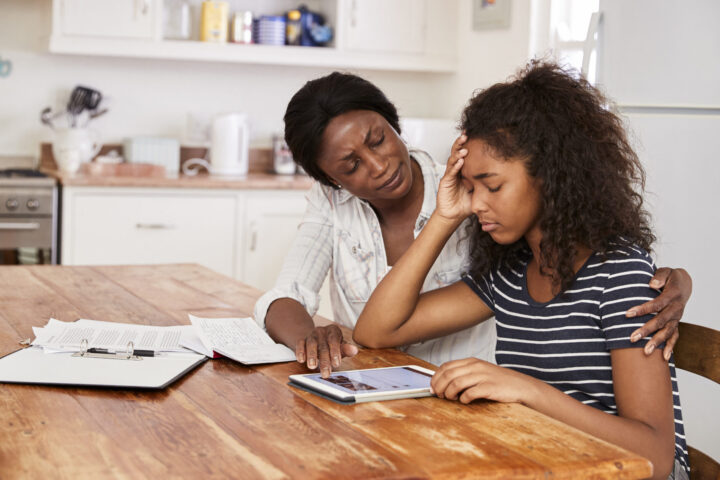- Parenting is not a walk in the park, and for most people, the experience may create challenges that exhaust them from time to time
- Parental burnout is characterized by overwhelming exhaustion related to one’s children and a sense of parental ineffectiveness
- You deserve to feel good about yourself as a parent. However, if you feel overwhelmed or need help developing effective parenting tools, don’t wait until you’re totally underwater to get help
CHECK: Subscribe to The Efficient Woman Newsletter and get the latest updates!
By Yvonne Mutumi Kyalo
Parenting can be a wonderful, meaningful, rewarding experience, but sometimes it has its perks.
It can be stressful, and when parents lack the resources needed to handle those stressors, they may lead to parental burnout.
Parental burnout is a state of mental, physical and emotional exhaustion experienced by parents.
The parent becomes emotionally detached from their children and doubtful of their capacity to be a good parent. When parents are exhausted, the family is likely to feel it.
A parent dealing with parental burnout tends to feel so drained by parenting that merely thinking about their role as parents makes them feel like they have reached the end of their rope.
As a result, they start to become emotionally distant from their children. They get less and less involved with them, and their interactions are limited to functional aspects at the expense of emotional aspects.
They do not feel like they are good parents anymore and therefore lose the pleasure of being with their children.
The fact is that child-rearing is a long and hard job. The rewards are not always immediately obvious as the work is undervalued. Parents are just as human and almost as vulnerable as their children.
Causes of parental burnout include aiming to be perfect parents, lack of emotion and stress management abilities, lack emotional or practical support from the other parent, embracing poor child upbringing practices, having children with special needs that interfere with family life, working part-time or are stay-at-home parents among others.
Many parents feel guilty when they complain about how hard parenting is and instead tend to keep it all to themselves.
When parental burnout is not addressed, it is more likely to result in a lot of negativity.
Research shows that parental burnout strongly increases escape ideation and neglectful and violent behaviours towards one’s children.
It is therefore important for parents to address it. Here are simple ways in how parents can deal with parental burnout.
Solutions to parenta burnout
Talk to your partner. If you feel that you’re dealing with parental burnout, talk to your partner and let them know how you feel.
Your partner might not pick up immediately that you’re experiencing burnout. So the only way that they can help is when you open up to them.
Together, you will come up with a solution and get you back in the right headspace.
Both of you are a team, and when one of you is not okay, the effect will carry on to the other.
Improve your self-care. Sometimes parents dedicate all their time to work and the family, leaving little or no time for themselves.
A parent cannot be able to take care of a family when they themselves are not ok. So the only way they can take care of a family is by ensuring they are taking care of themselves.
When you’re dealing with parental burnout, find something that can get you rested and relaxed.
You can try doing regular exercises or even yoga. You can also consider treating yourself either with a staycation or a day out.
Consult a therapist. It’s never wrong to seek professional help when you feel like you can’t handle parental burnout.
Find a therapist to talk to about what you’re going through. A therapist can provide a safe space for you to air out or what you’re going through, and they can help you find a solution or other way of dealing with parental burnout.
Talk to your family or a couple of friends. You can always consult your family or your couple of friends. Talk to the ones that have experienced the same and get to know how they dealt with it.
Make your couple friends your support group and be leaning on them whenever you feel like you can’t handle an issue on your own.
You don’t have to talk to them alone. You can invite your partner and together talk about the various parental issues that you’re experiencing.









